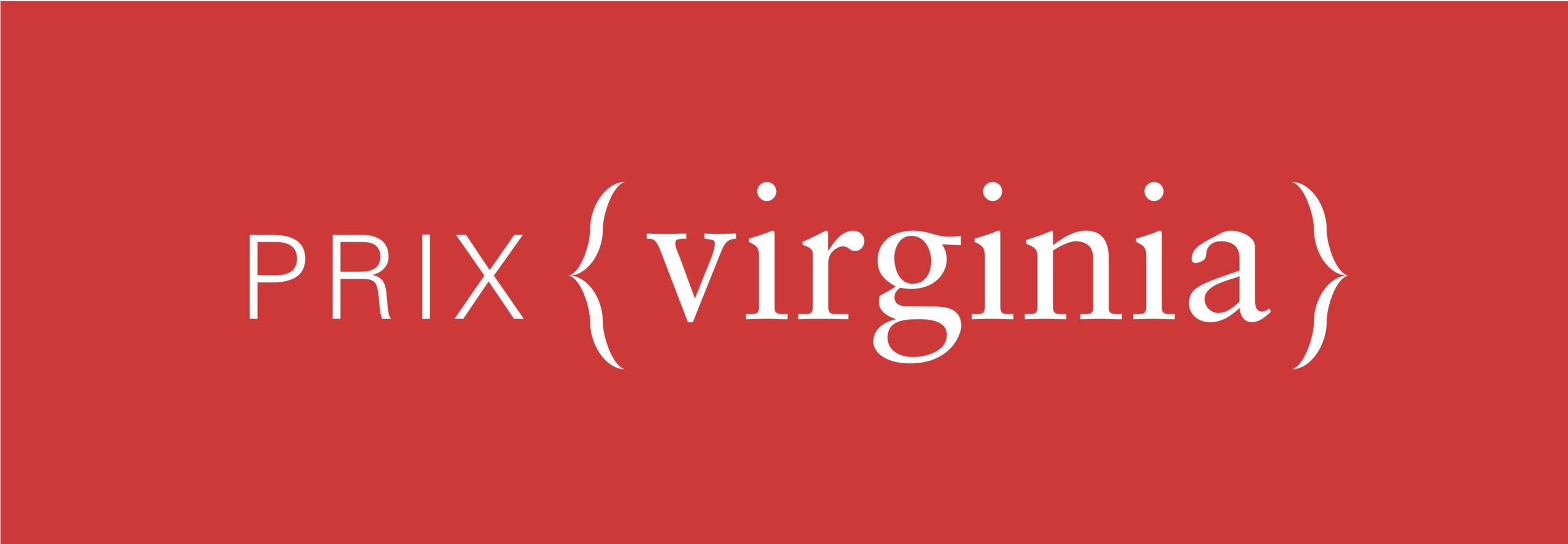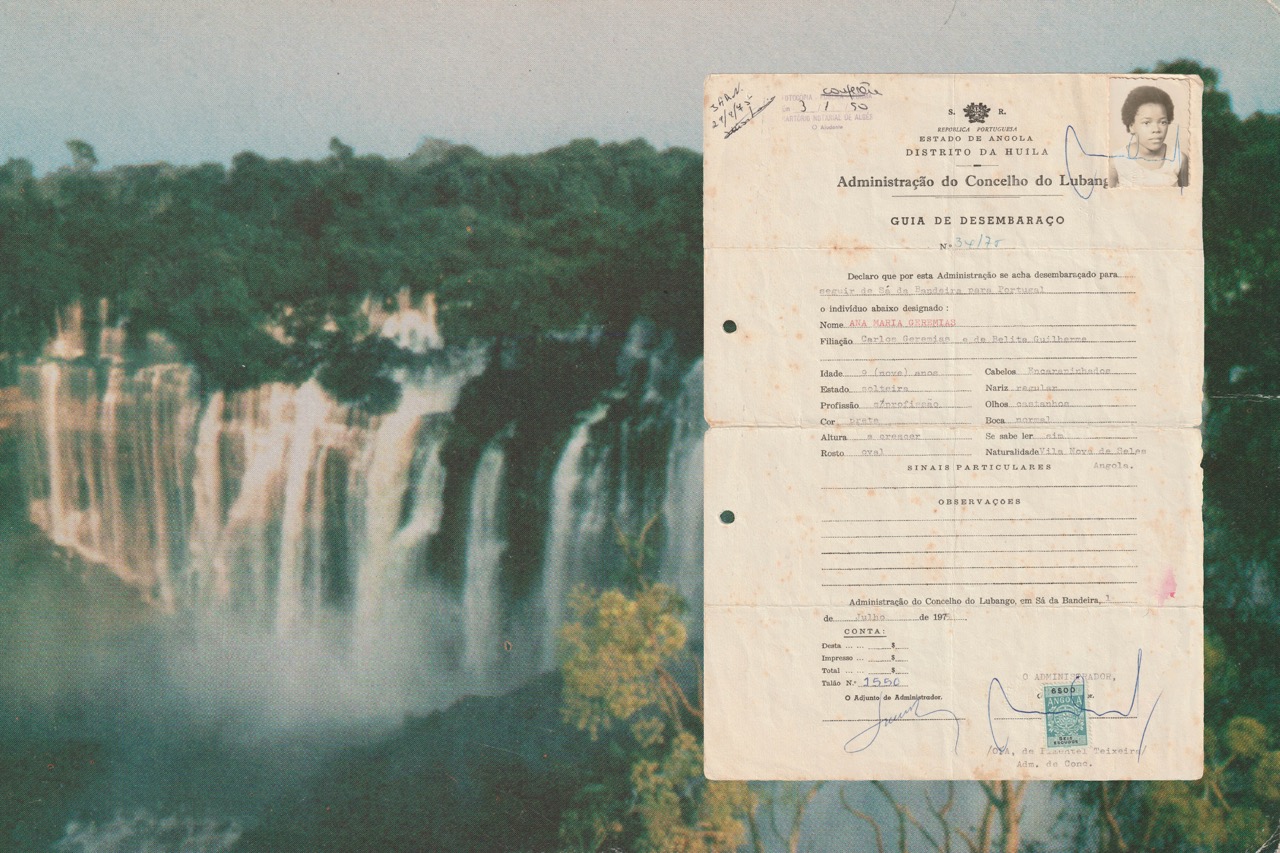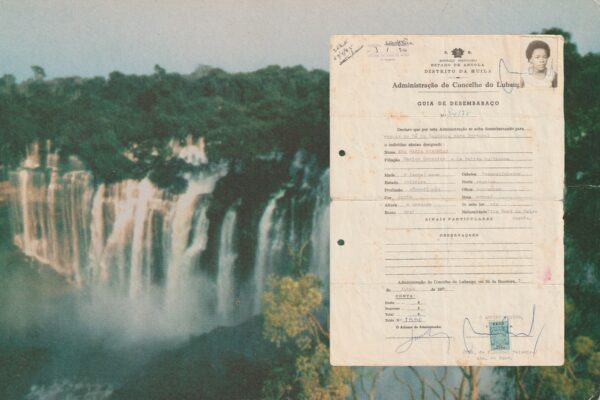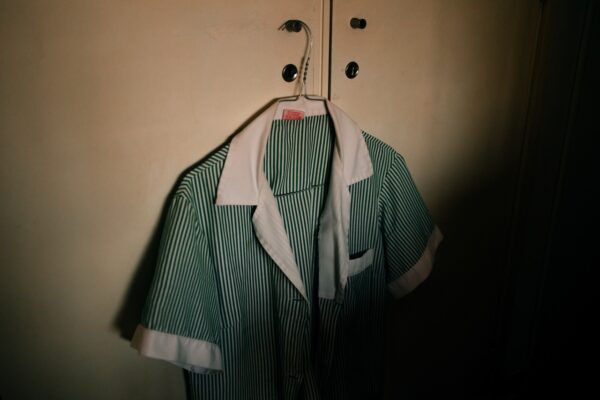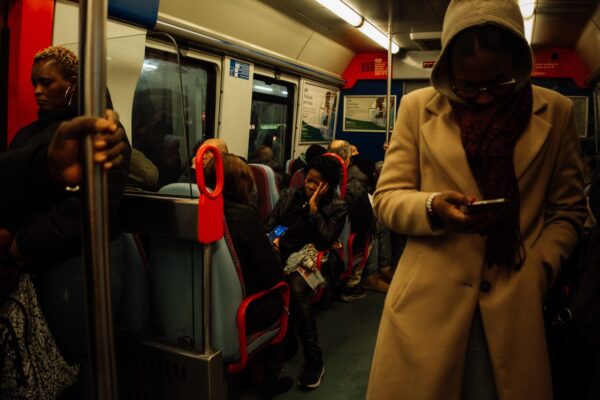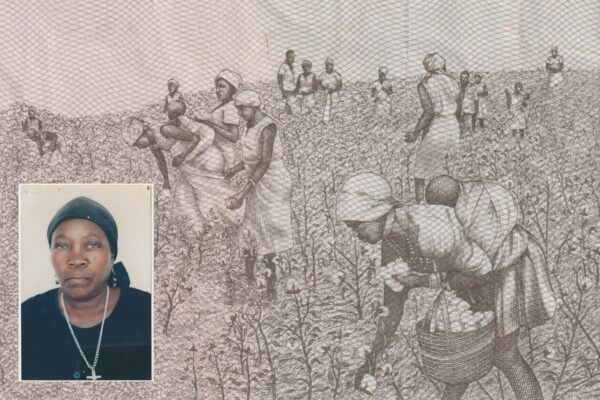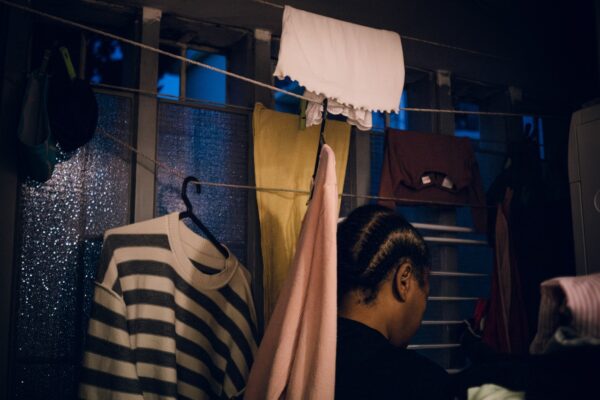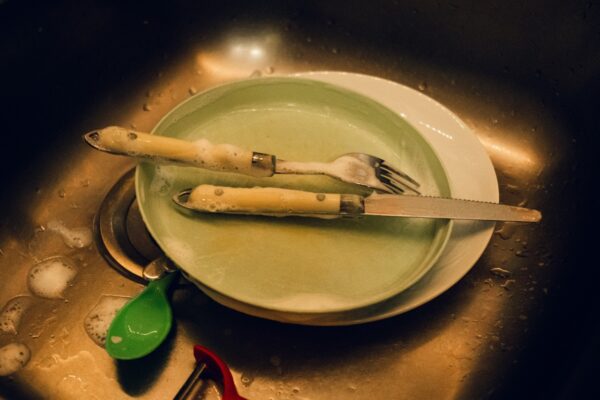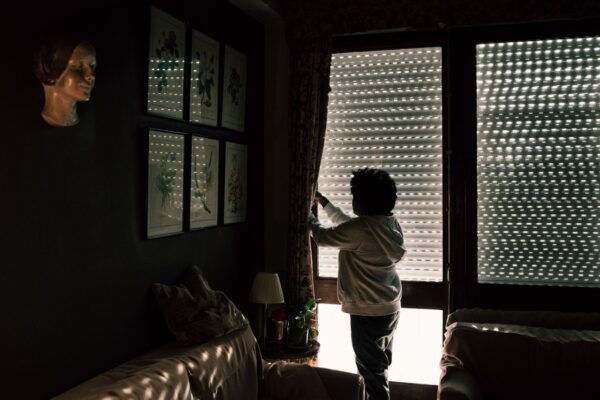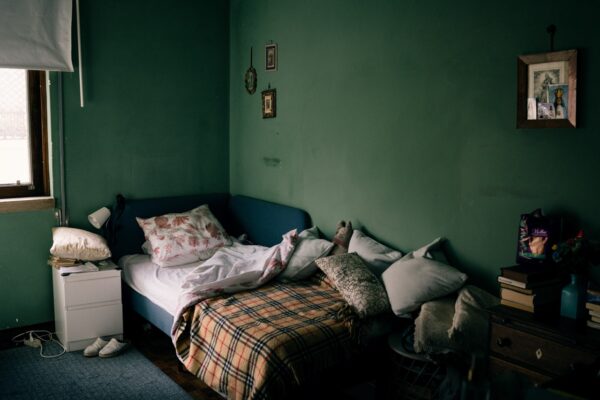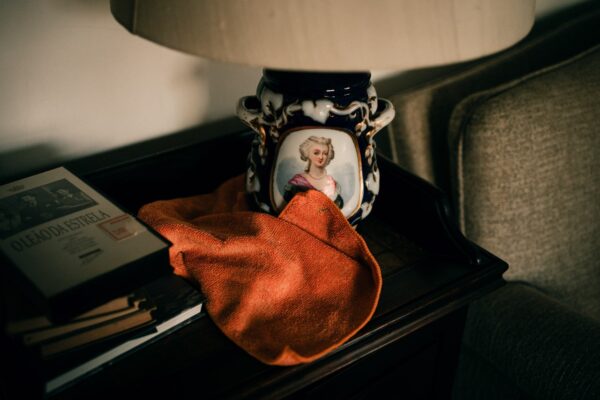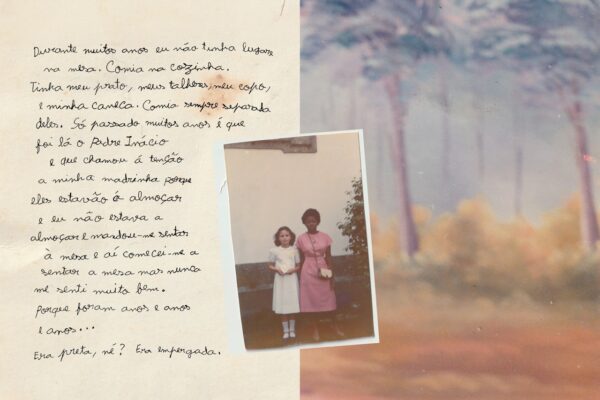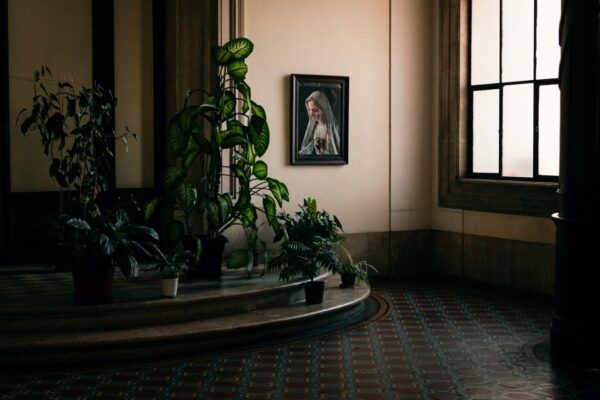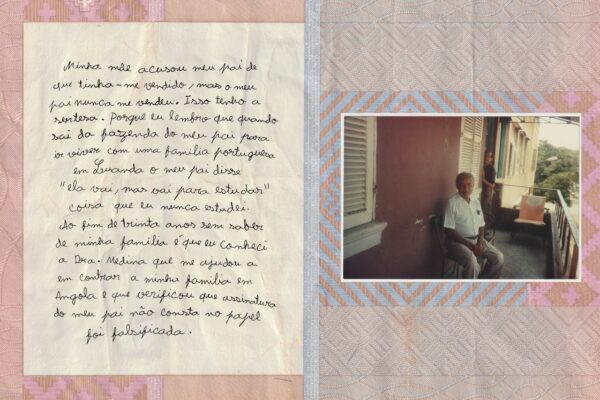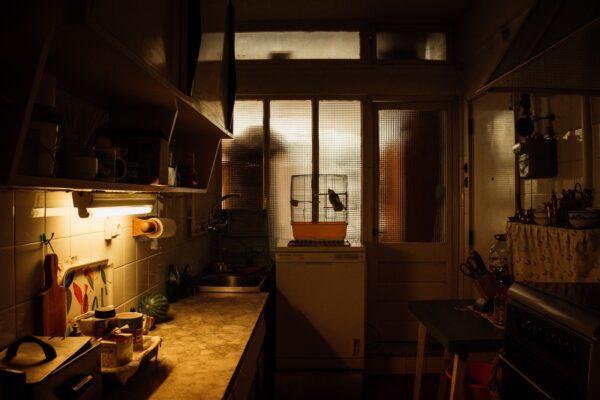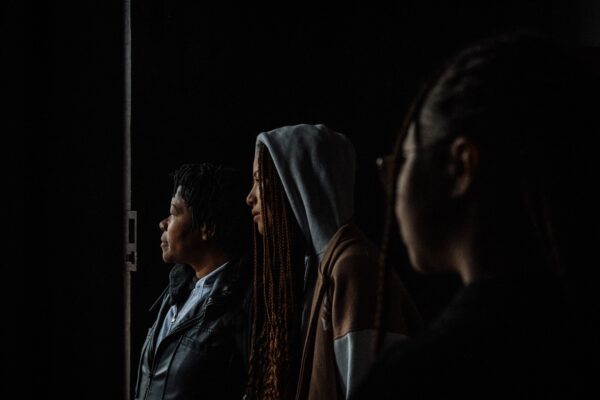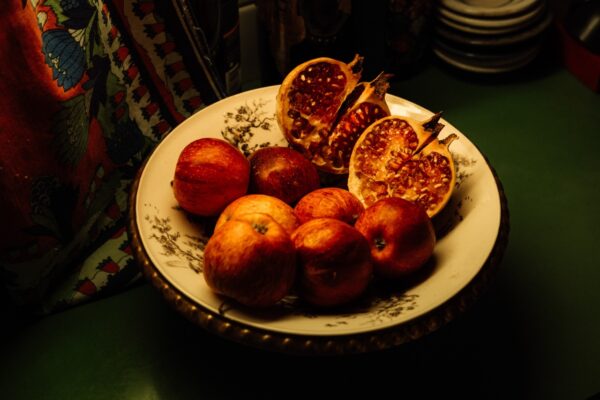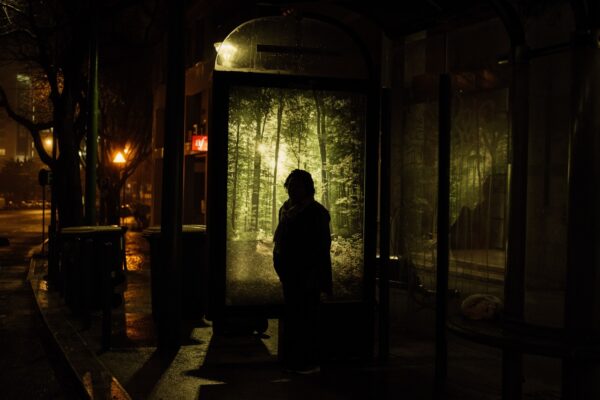Maria Abranches
Lives and works in Portugal
www
MARIA
MARIA tells a story common to countless women, whose silent contribution has built, shaped, and sustains the world.
Ana Maria was born Utima, the Kimbundu word for “heart,” which could well describe the woman she would become: a figure of strength and affection, working and caring for the homes of many families for over four decades.
At the age of 9, she left Angola – her homeland – her family, and her friends, under the promise of being able to study – something that never happened. She was brought to Coimbra by a Portuguese family whom she later discovered had falsified her father’s signature authorizing her departure. We now know that Ana Maria was trafficked.
Upon arrival in Portugal, she was given a new name, Ana Maria, and a new year of birth, 1965. At the age of 24, she moved to a shantytown on the outskirts of Lisbon and later to Rio de Mouro, from where she travels daily to the city center, where she works tirelessly. She learned to read and write alongside the children she cared for, but, in her words, spent her entire life cleaning.
For historian and activist Françoise Vergès, everything begins with the questions “Who cleans the world?” and “Why does this work have a racial and gender profile?”. These were the questions that served as the inspiration for this work, which delves into the little-known history of the lives and work of racialized women in Portugal, where the social structure is still strongly marked by its colonial past.
At the same time, MARIA seeks to provoke reflection on the privileged position of the middle class, in whose homes women like Ana Maria clean, cook, and care for other people’s children.
This work resulted in a diary, which aims to recover and restore the memories that had been erased from her history, using photography and collages with documents and images from her archive, as a way to assert her right to memory and citizenship.
